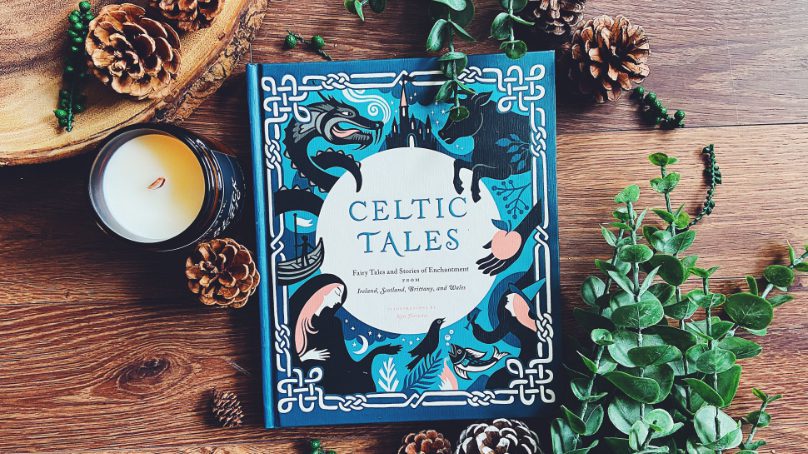What is the definition of the Greek word Mythos?
Mythos is a Greek word meaning ‘story of the people’. It is no wonder that whenever you think of mythology, Greek mythology is usually the first thing to spring to mind. There are, of course, myths from all over the world, seeing as they have existed across different cultures to explain how things came to be.
Some examples include stories of why seasons change or even how the world itself came to be. Mythology and folklore have inspired countless writers and storytellers for generations, and for this reason the majority of us have come across versions of these stories on television and in books.
*Disclosure: We only recommend books that we love and would read ourselves. This post contains affiliate links, as we are part of the Amazon Services LCC Associate Program and others, which may earn us a small commission, at no additional cost to you.
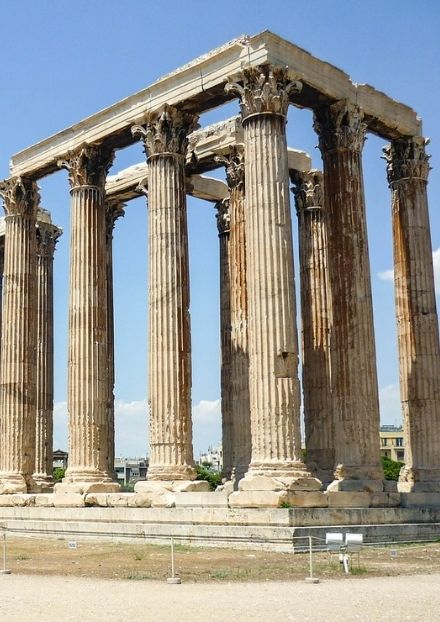
What books are inspired by Greek mythology?
There are many fictional retellings of various characters out of Greek mythology including Circe and The Song of Achilles by Madeline Miller, Lore by Alexandra Bracken, Ariadne by Jennifer Saint, Percy Jackson and the Olympians (series) and The Heroes of Olympus (series) by Rick Riordan to name a few.
There are fictional retellings as well as collections of translations and research from original sources of Greek literature. You might also be familiar with the epic poems The Iliad and The Odyssey by Homer, some of the oldest works of Western literature that gave us a peek into Greek culture.
While other writers have retold Greek myths, what makes Stephen Fry’s retelling stand out is his humorous and captivating narrative.
What stories are in Mythos?
In Mythos Stephen Fry takes right back to the very beginning of the Greek mythology timeline. According to Greek mythology, in the very beginning, there was nothing but ‘Chaos’, out of which came Erebus (darkness) and Nyx (night). Their union produced Hemera (day) and Aether (night). Out of ‘Chaos’ also sprang forth Gaia, the earth, and Tartarus, the depths and caves beneath the earth.
Gaia produced Pontus, the sea, and Ouranos, the sky. Out of Hemera and Aether’s union, Thalassa, the female counterpart of Pontus-the sea-was formed. These were the First Order of divine beings. Time began with the coupling of Gaia and Ouranos.
Stephen Fry includes a family tree in this book to show us the relationships between the second order of primordial beings and the Olympians. This helps to keep track of some of the characters and their associations as there are many more mentioned after these.
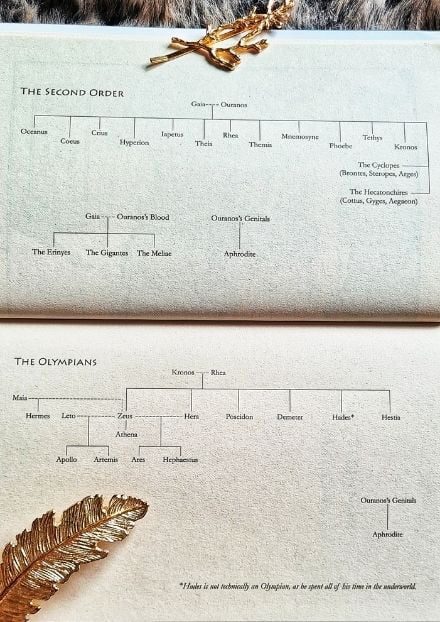
My Thoughts on Mythos
With the key introductions out of the way, its much easier to follow the stories of the dalliances, quarrels, and deceptions between the various deities. It is interesting to see how some of the monsters came into existence as well. Stephen Fry shows us the very human characteristics and traits in the Greek gods in his vivid retelling of the myths.
We learn how Athena was born out of the cracking open of Zeus’s head, we learn why the seasons change as Demeter mourns her daughter Persephone being gone to the Underworld for six months every year, we learn about Pandora and her jar of evil torments, we learn about Narcissus whom everyone fell in love with at sight and who fell in love with his own reflection (which led to his demise), we learn of the love affair between Eros and Psyche, and so much more.
There are stories portraying jealousy and wrath of the gods as well. There are tales of incest, zoophilia, and cold-blooded murder. More shocking, for me, was reading how Zeus treated various women. Greek gods were very flawed indeed. Although, one redeeming quality among the gods was how homosexuality was just as natural as heterosexuality. Even Zeus himself had a male lover at one point.
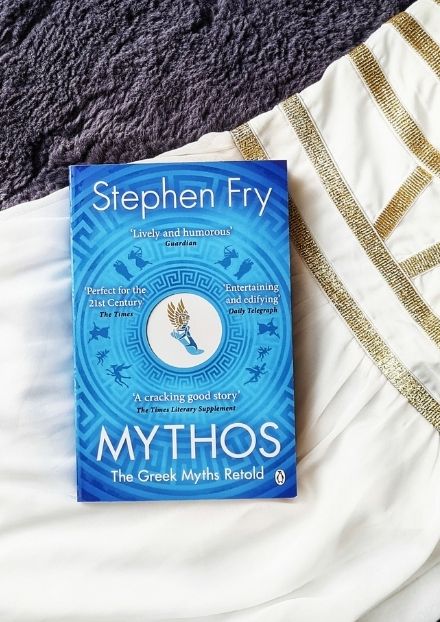
What books are in the Greek myths trilogy by Stephen Fry?
- Book 1 – Mythos: The Greek Myths Retold
- Book 2 – Heroes: Mortals and Monsters, Quests and Adventures
- Book 3 – Troy: Our Greatest Story Retold
This is the first book in Stephen Fry’s Greek myths trilogy. While being in-depth, it is still an easy read given Stephen Fry’s amusing narration. Mythos takes these ancient tales and brings them a little closer to Earth, making them feel a little bit more rooted in reality. We appreciate relatable stories about magical beings, after all.
Should I read Mythos before Heroes?
Book 2, Heroes, is all about the legendary heroes in Greek mythology while book 3, Troy, is a retelling of the siege of Troy. You don’t need to read any of these in order but I found it useful to follow the timeline from the beginning so I would recommend it. If you’re a fan of Greek mythology, I’m sure you’ll appreciate all the books in this trilogy.
The Review
Mythos
Mythos is a retelling of Greek mythology’s not-so-perfect gods that have inspired writers and story tellers for generations. This is the first book in Stephen Fry’s Greek myths trilogy. While being in-depth, it is still an easy read given Stephen Fry’s amusing narration.
PROS
- Entertaining narration
- In-depth retelling of the Greek myths from the beginning
- Full of drama and scandal
CONS
- Difficult to remember all the different characters
- Contains controversial themes like incest and zoophilia

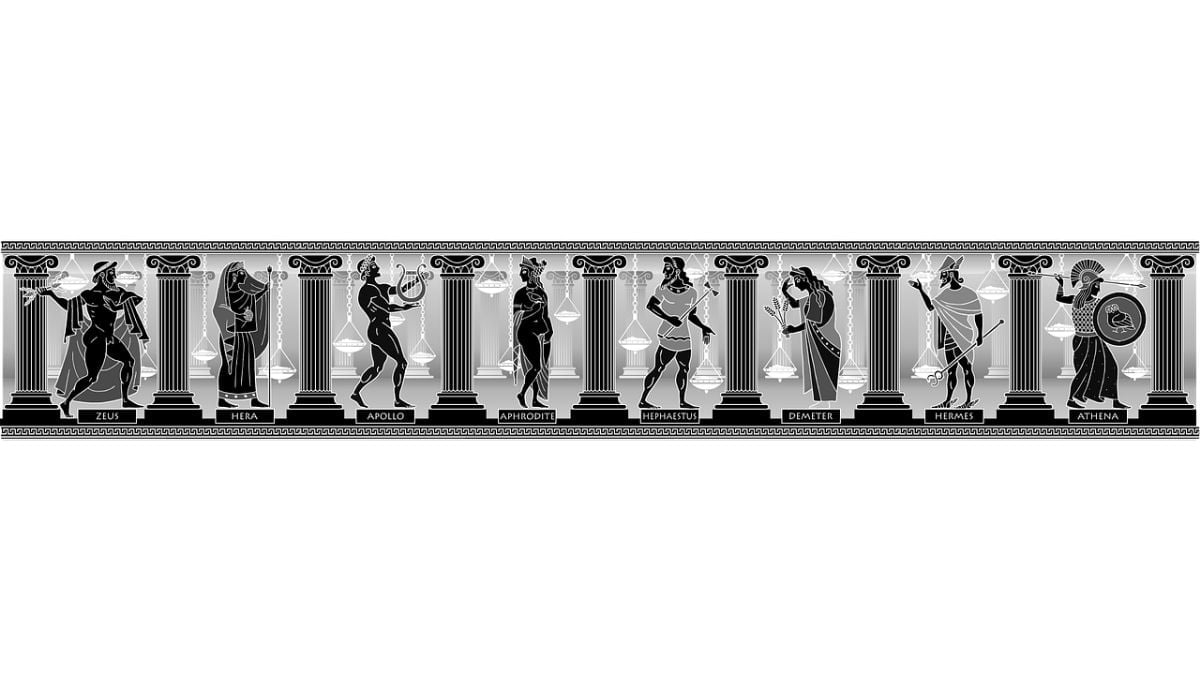


 Amazon
Amazon
 Barnes&Noble
Barnes&Noble
 Walmart
Walmart

